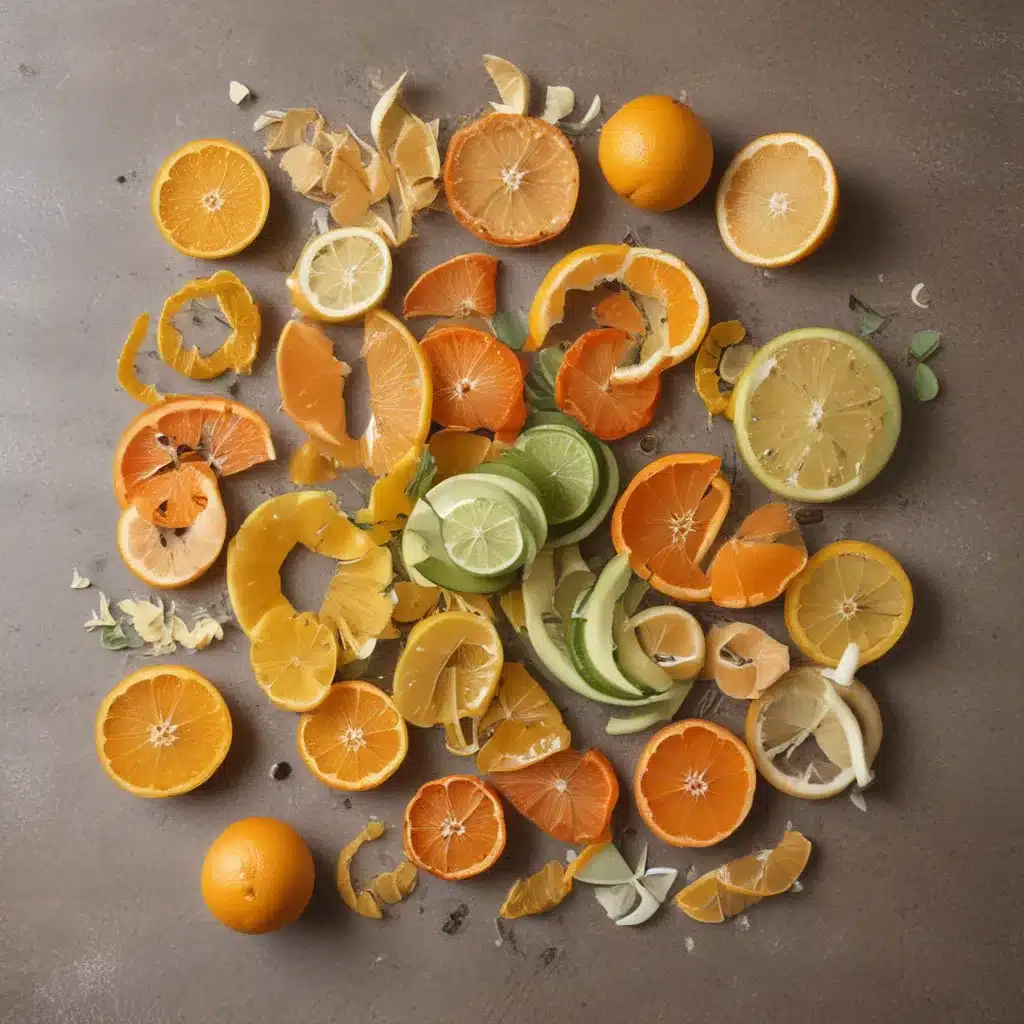Citrus Peel and Veggie Scraps for Zero Waste Cleaners
I’m a self-proclaimed trash hoarder. Not the kind that collects mountains of refuse – that would be unhygienic and a fire hazard. No, I’m more of a scavenger, always on the lookout for overlooked items that can be repurposed or upcycled.
Take my recent obsession with orange peels, for instance. Over the winter, I found myself hoarding them compulsively. But it wasn’t because I had a secret stash of Oranjestad-grade crystal meth hidden in the back of my pantry. Rather, I discovered so many clever uses for those fragrant citrus rinds – from homemade cleaners to fire starters (which, admittedly, didn’t work as well as I’d hoped).
The Power of D-Limonene
One of my favorite orange peel projects was turning them into an all-purpose household cleaner. As it turns out, those bright yellow peels contain a natural oil called d-Limonene that’s great for cutting through grease and grime. In fact, many commercial cleaners actually include synthetic versions of this compound.
I followed a simple recipe from Zero Waste Chef: Just submerge orange peels in distilled white vinegar, let the mixture steep for a couple weeks, then strain out the solids. Boom – you’ve got a potent, all-natural degreaser, ready to tackle everything from kitchen countertops to tile floors.
Scrap Vinegar: The Ultimate Upcycle
But I wanted to take my homemade cleaner one step further. Why not make the vinegar myself, using food scraps? After all, scrap vinegar is essentially free, and you can customize the flavor by using different fruit and veggie peels.
The process is simple: Just toss your citrus rinds, apple cores, or whatever other food scraps you have on hand into a jar, add a bit of sugar and water, then let it ferment for about 10 days. Strain out the solids, and voila – you’ve got your own homemade vinegar, ready to be the base for your citrus-powered cleaning potion.
Cleaner Than Clean
I’ve been using my DIY orange peel and scrap vinegar cleaner to keep the Adam’s Cleaning HQ spick and span. It cuts through grease and grime with ease, leaving a fresh, citrusy scent in its wake. And the best part? I’m not contributing to landfills by tossing out those pesky peels.
In fact, I’ve gotten so excited about finding new uses for food scraps that I’m constantly on the hunt for more waste-reducing cleaning hacks. A few of my recent discoveries:
- Using dried, spent tea leaves as a gentle abrasive for polishing mirrors and windows
- Making lemon-infused dusters by rolling citrus peels in soft cloths
- Composting veggie scraps to create nutrient-rich soil for my garden
The zero-waste cleaning revolution is in full swing, my friends. And with a few simple ingredients – like orange peels and vinegar – you can join the fight against wasteful, chemical-laden products. Your wallet, your home, and the planet will thank you.
A Cleaner, Greener Future
As the owner of Adam’s Cleaning, a family-owned cleaning service in Nottingham, I’m always on the lookout for ways to reduce our environmental impact. And transitioning to homemade, all-natural cleaners made from food scraps has been a game-changer.
Not only are these DIY solutions better for the Earth, but they’re also incredibly effective and affordable. I’ve been using my orange peel and scrap vinegar cleaner to tackle everything from grease-stained stovetops to hard water buildup on fixtures. And the fresh, citrusy aroma is just an added bonus.
Plus, the process of making these cleaners is surprisingly satisfying. There’s something deeply rewarding about turning your food waste into a powerful cleaning tool – it’s like giving those peels and scraps the most dignified end possible.
So if you’re ready to ditch the harsh chemicals and join the zero-waste cleaning revolution, I encourage you to give this orange peel and scrap vinegar cleaner a try. Your wallet, your home, and the planet will all be the better for it. Happy cleaning!







